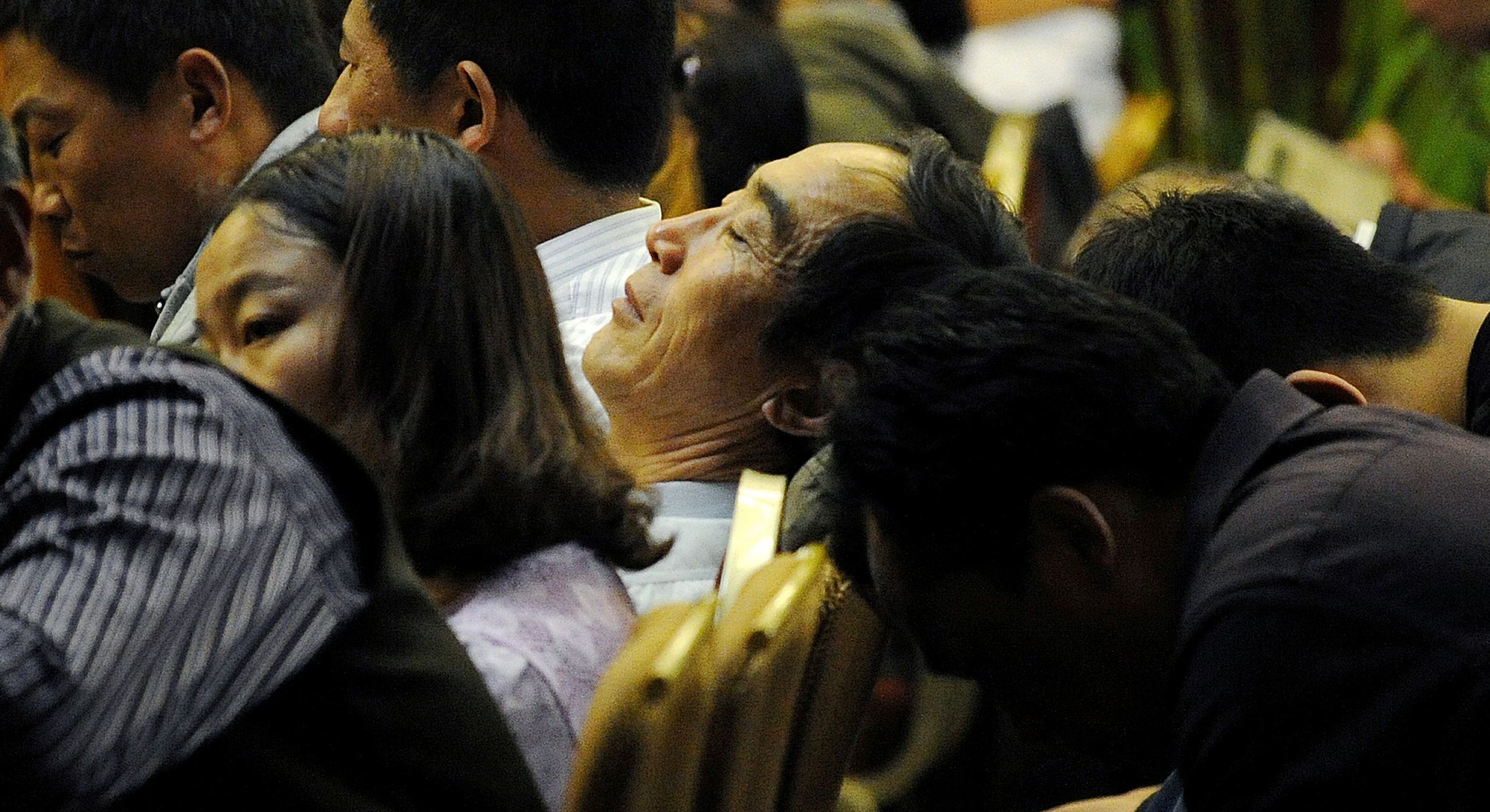
The hotel became a powder keg of conflict between highly emotional relatives seeking answers about their missing loved ones, and airline officials and Malaysian government representatives stymied by the way flight MH370 vanished.
Read: Families move out of Beijing's Lido Hotel
Yan's younger son Yan Ling, 30, was one of the 153 Chinese passengers on the flight - making up two-thirds of those on board.
The last time the pair had spent time together was when Yan Ling returned to the family home for Chinese New Year in late January.
The annual pilgrimage is replicated in tens of millions of homes across the country, where high-achieving offspring often find work in the booming cities after university, rather than in their backwater hometowns.
During regular family briefings at the hotel, the 60-year-old would sit near the back of the hall, sipping a cup of iced water provided by airline support staff and lifting his head only during the occasions when tempers frayed.
Sometimes he would find solitude away from the insults and allegations, sitting outside in the car park with his thoughts and a cigarette, while relatives burst out of the door behind him sobbing into their handkerchiefs.
In the early days after the plane's disappearance, the signs of sleepless nights were etched on his face, with bags under his eyes and his thin hair ruffled.
Now Yan is more outwardly composed, but inside he remains crippled.
He has "felt nothing but despair", he says, since his life was turned upside down by a phone call from his son's girlfriend on the morning of March 8, 56 days ago.
"She said two sentences. She told me 'The plane is missing. Yan is missing'. Then she said nothing more, as she burst out crying," said Yan, from Yancheng in the eastern province of Jiangsu.
His son's boss telephoned him to say that the aircraft was missing and he should travel to the capital.
"I dropped everything and made the journey here."
There were no flights available to Beijing from nearby airports, so he had no choice but to buy a standing ticket on a train which took "a day and night".
Even at normal times the crowded journey would be gruelling. In the circumstances it was mental torture.
"The plane has gone. The plane has gone. I knew it was something terrible," he said, recalling the thoughts that raced through his mind.
Yan described his missing son as "introverted", but his tone brightened as he proudly exclaimed: "His boss says he is an excellent worker. A really good engineer."
Yan Ling works for a medical equipment company in Beijing's Haidian district and had travelled to Malaysia on a work-sponsored "short-study trip" with a colleague, his father said.
The family are close, said Yan, who was joined in Beijing by his elder son while his wife, who has health problems, stayed in Yancheng.
A vast multi-national search has failed to find any sign of wreckage, and some Chinese relatives have embraced improbable conspiracy theories of hijackings and hostage-takings.
At times the reality of the most likely outcome hits Yan.
"The passengers have probably already died," he said. "I think so, but I don't dare to tell my family that."
Even so, as his voice broke with emotion, Yan refused to accept that he may have spent his last Chinese New Year with his son.
He still clings to the thought of Yan Ling one day walking through the door of the family home once again.
"That would be great. I would be so happy. I hope this day will come, and I will always keep that hope." - AFP
Subscribe or renew your subscriptions to win prizes worth up to RM68,000!

Found a mistake in this article?
Report it to us.
Thank you for your report!


